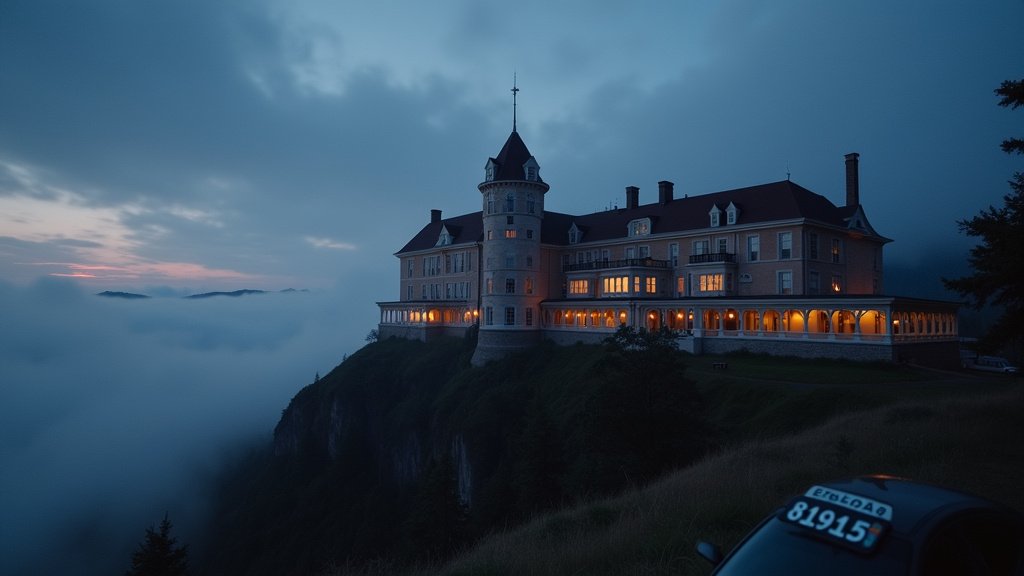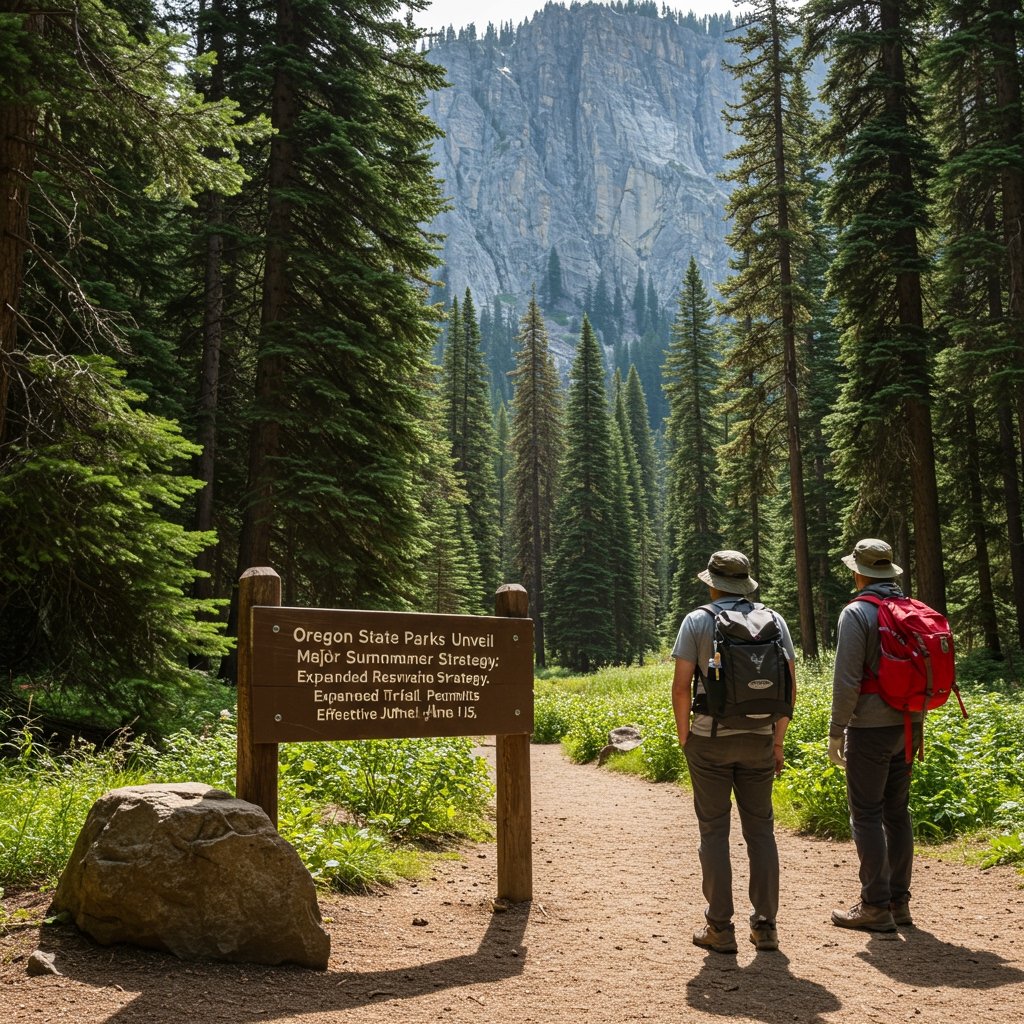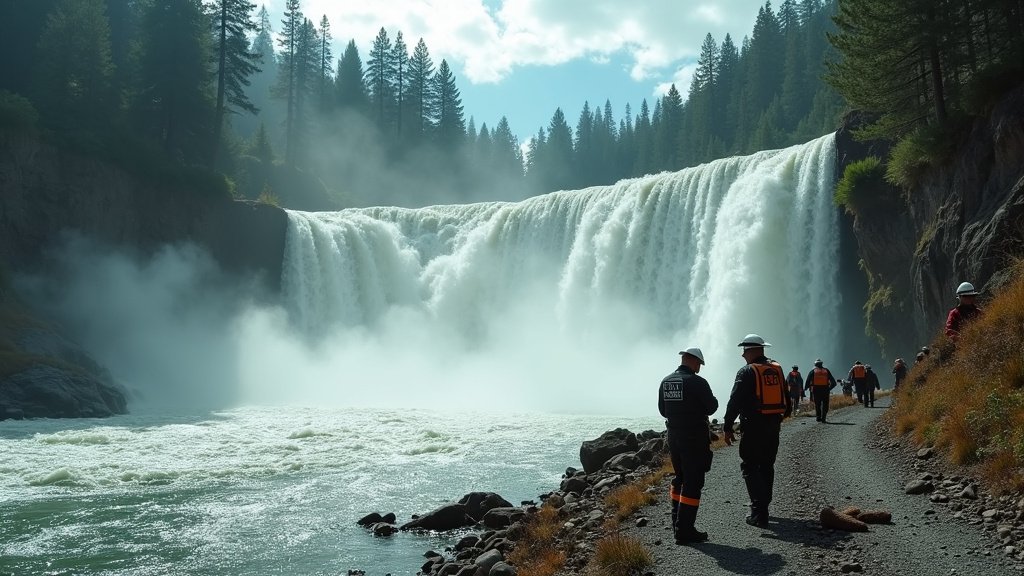Oregon State Parks is implementing a $10 daily parking fee at the iconic Vista House at Crown Point State Scenic Corridor, a popular viewpoint in the Columbia River Gorge, effective October 1, 2025. This move is part of a broader initiative to apply fees to 21 additional day-use parks, expanding the system’s paid parking locations from 25 to 46 across the state. The decision arrives as the Oregon Parks and Recreation Department (OPRD) grapples with a significant budget shortfall, projected to reach 14% by 2027 if current trends continue.
Expanding Fees for Park Operations and Maintenance
The new parking fee structure will require visitors to pay $10 per day for their vehicles if they are Oregon residents, and $12 per day for out-of-state visitors. This initiative aims to bolster funds for park operations and maintenance, covering essential services such as staffing, trail upkeep, paving, and restroom facilities. Officials have noted that visitor fees have not kept pace with the rising costs of maintaining and operating the state’s beloved parks, a situation exacerbated by a decrease in lottery funds, which historically make up nearly half of the OPRD budget.
Oregon State Parks previously doubled its day-use parking fee from $5 to $10 at the beginning of 2025, marking its first increase in 15 years. The department manages 259 properties statewide and relies on visitor fees (35% of its budget) and recreational vehicle license plate fees (15%) for operational revenue, as it receives no general fund tax support. The selection of parks for new fees, including Vista House, was based on criteria such as high visitor volume, available amenities, and accessibility to recreation.
A Wider Fiscal Picture in Oregon
The introduction of these new park fees occurs against a backdrop of broader financial challenges and proposed tax increases in Oregon. Governor Tina Kotek has called for a special legislative session to address a stabilization of the Oregon Department of Transportation’s (ODOT) budget, which faces its own funding crisis. The Governor’s proposals include a 6-cent increase to the state’s gas tax, higher vehicle registration and title fees, and a surcharge for electric vehicles, all intended to prevent layoffs within ODOT and restore essential services. These measures reflect a state-wide trend of increased costs and revenue pressures affecting public services and leisure opportunities for Oregonians.
Visitor Information and Exemptions
Oregon State Parks emphasizes that not all visitors will be subject to the new parking fees. Those who walk, bike, or use public transportation to reach the parks will be exempt. Additionally, visitors holding a valid camping reservation hangtag or a 12- or 24-month annual parking permit will not need to pay the daily fee. Annual permits are available for $30 (12 months) or $50 (24 months) and are transferable between vehicles. Daily permits can be purchased at fee machines located near park entrances or, in some cases, at park offices.
Beyond day-use parking, Oregon State Parks is also implementing increases for overnight camping, cabin and yurt rentals, boat moorage, and primitive camping fees to help address the budget shortfall.
Vista House: An Iconic Oregon Landmark
The Vista House at Crown Point, a historic landmark built in 1916, offers panoramic views of the Columbia River Gorge and serves as the start of the famed “Waterfall Corridor”. Prior to these changes, access to the Vista House and its grounds was free, supported by donations and volunteers. However, visitors should note that a section of the Historic Columbia River Highway near Vista House is currently closed due to landslide repairs, requiring travelers to use Interstate 84 exits for access. This closure is estimated to last until the end of September 2025.
These fee adjustments and proposed tax hikes highlight the ongoing efforts by Oregon’s state agencies to balance the demand for public services and natural life preservation with the realities of increasing operational costs and evolving funding landscapes. The news serves as a reminder of the financial considerations tied to enjoying popular public spaces across the state.




